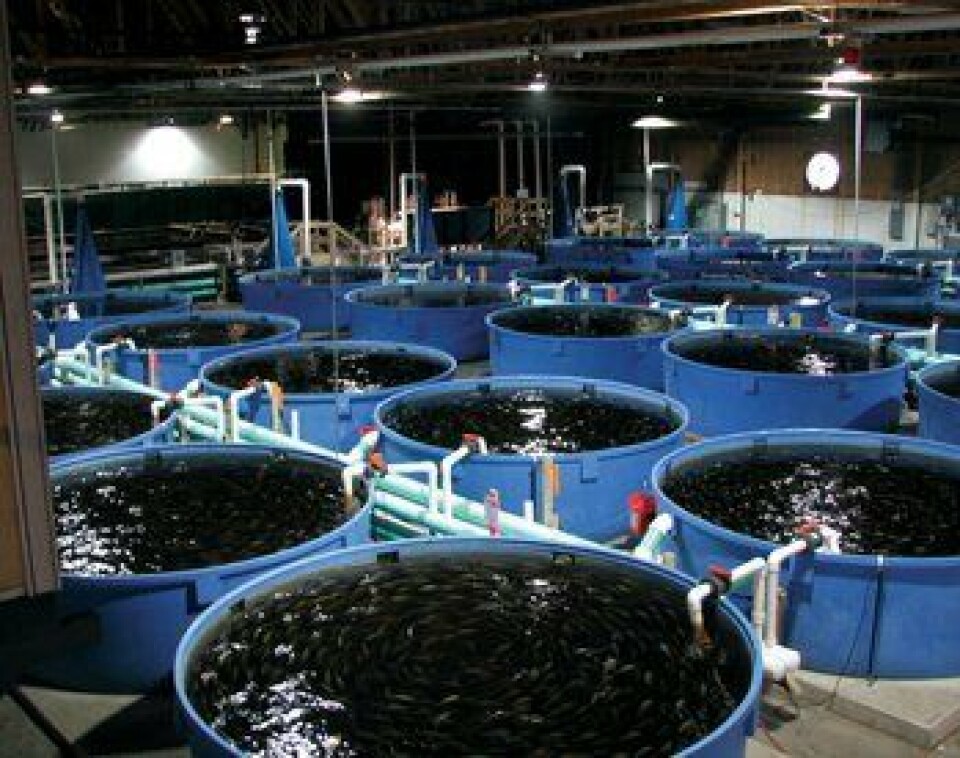
Another closed containment expert emerging
As with many other proponents of Recirculating Aquaculture Systems (RAS), an Israel-based company named Grow Fish Anywhere Advanced System Ltd. claims to have “developed and implemented a unique patented fully closed, zero discharge intensive aquaculture system that is suitable both for fresh and sea water fish”. The company’s web site further claims that “The system prevents environmental pollution, and can operate in any climate regardless of the availability of water resource or proximity to the sea. The system has been tested and proven on a scientific basis and is now operated commercially”.
A recent article by the New York City-based New Tang Dynasty (NTD) News provides further information, suggesting that "Grow Fish Anywhere" Promises Eco-Friendly Fish Farming Future;
Israeli marine biologists have found a way to grow fish anywhere in the world, regardless of climate or distance from water supplies. Grow Fish Anywhere, or GFA, is a privately-owned Israeli company that has developed a network of enclosed tanks. The tanks connect to biological filters, where wastewater is filtered and run through the tanks again. The first such commercial facility is in Hudson, New York, in the United States.
The GFA system uses tap water treated with salt from the Red Sea. The water that's used to grow fish is constantly recycled and recirculated, so that there is zero discharge. Fish that are grown in these tanks have a higher rate of growth and output. "If we maintain a biomass of let's say eighty kilograms of fish for cubic meter, then our yearly production per cubic meter is something like 120 to 130 kilograms of fish, so those systems are very, very intense. We can grow a lot of fish in a very compact way", said Professor Jaap van Rijin, Hebrew University. So, other than one percent of water loss due to evaporation, the rest is not wasted. Solid waste from the fish is consumed in the algae tanks.
Yossi Tal, Research & Development, GFA: "Right now the oceans are depleting from fish, what is left over there is being polluted and there is a big problem to deliver to the markets the needed seafood that... right now the demand is just rising. We believe that our technology will do that, we'll fill up this gap between demand and production." So far only fish species that are known to grow in existing fish farms can be grown in the new system. Species like the endangered Blue Finned Tuna cannot be grown in the controlled environment yet. Right now, people will still pay a high price for these anywhere-fish, even with reduced freight costs and transportation.
Dotan Bar Noy, CEO at GFA: "In this system we have a live bacteria working for us, cleaning the water making us able to reuse those waters. We are now taking that advantage making it with the best technical design, the best tanks, pipes, biofilters and so on in order to make sure that we will be able to raise fish less, it will cost us less to raise each kilo of fish than any other system that is out there." GFA has raised about six million dollars from private investors and hopes to be profitable by mid 2013.
They plan to expand first in western Europe and then in the U.S. but a legal spat may stand as an obstacle. The first commercial farm in upstate New York is a joint venture with Sanit Group, which is currently locked in a legal battle with GFA over adaptations to the patented technology.






















































